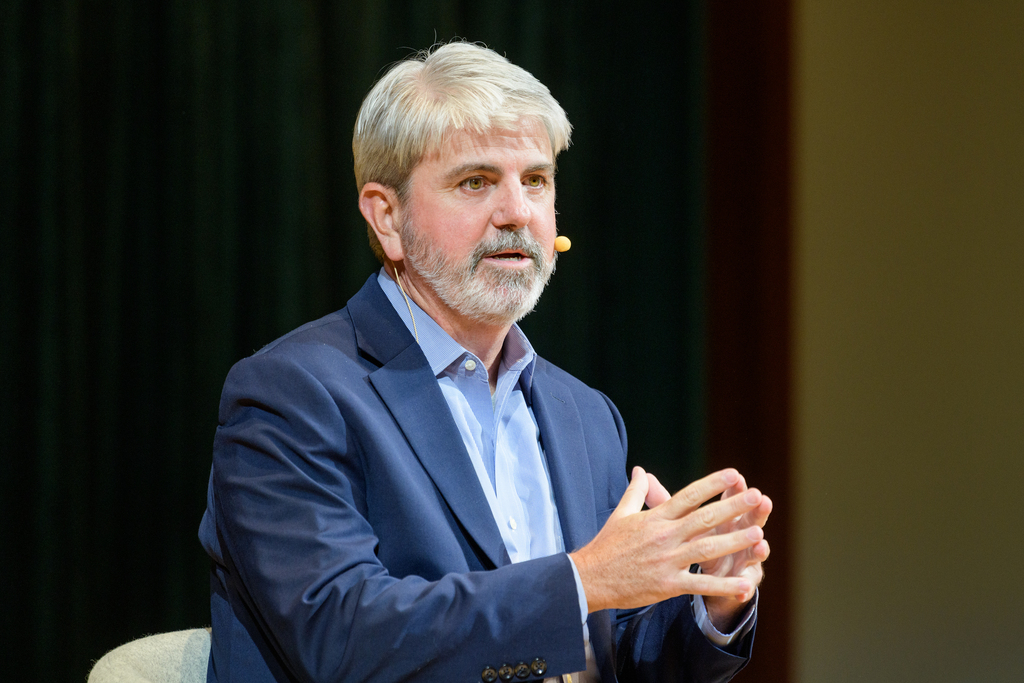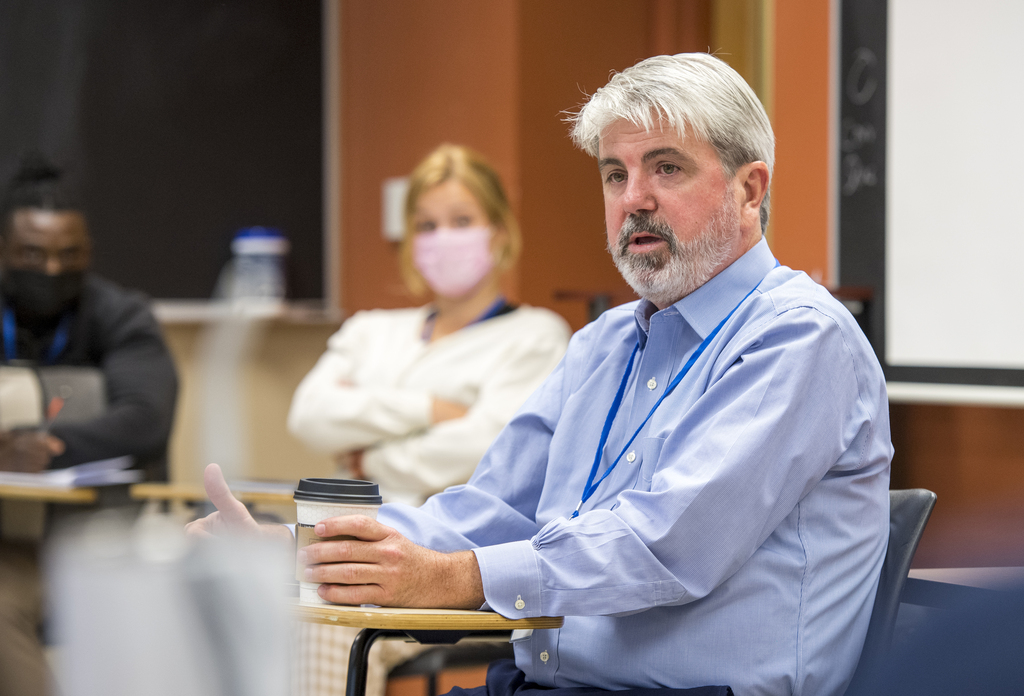After the insurrection
Journalist Paul Kane details events of the Jan. 6 attack on the Capitol

Watch a video of the complete program. Read the transcript.
NEWARK, Del. – Washington Post congressional correspondent Paul Kane found himself amidst the chaos on Jan. 6, 2021. One day earlier, media attention had become focused on the state of Georgia, where two elections would decide the U.S. Senate majority. The news that Democrats pulled off an upset was slated to be the headline.
Kane was in the Senate Chamber the next day, covering the certification of the presidential election. He had left his seat in the north wing of the Capitol when he noticed unrest outside the third-floor window of the building. “I never dreamed that anybody would get into the building,” said Kane to the audience in UD’s Gore Recital Hall on Sept. 7. Kane was the first speaker of UD’s National Agenda 2022 speaker series, “Politics by the Numbers.”
Then, Mike Pence was pulled from his chair on the Senate floor. “This was probably a security issue,” said Kane. In just minutes, the Capitol was engaged in a full-on insurrection. Kane was ushered alongside the U.S. Senators underground into a hearing room that would act as their shelter from the violence for the next several hours. “The last thing I saw on the Senate floor were three or four staffers grabbing the boxes of the Electoral College certificates. If those certificates had been found 15 minutes later by these insurrectionists who got into the Senate floor, they probably would have burned them.”
Paul Kane, a member of UD’s class of 1992, majored in political science with a concentration in journalism. He has covered Congress since 2000. He started with the Washington Post in 2007, covering the 2008 financial crisis and the Obama-Republican fiscal wars.
Since the events of Jan. 6, Kane has witnessed the unrest in the House of Representatives, spurred by the intrusion that day. He broke down the dissension in Congress in terms college students may understand, comparing the two parties with the University of Delaware Blue Hens, and their sports rival, the Villanova Wildcats. “If they’re saying something that we perceive as being critical of Delaware, well, then we move back into our camp,” Kane said. Much like the rivalry between the two schools, there is a rivalry between the two parties. Democrats and Republicans in the House can’t seem to make opinions meet when it comes down to the events of that day.
Kane said his job is not just reporting who wins and loses in Congress. “I’m trying to explain why that happened. It’s not just who’s up and who’s down, but it is also about the broader picture,” Kane explained.
Students had the chance to sit down with Kane at dinner prior to the event. There, he spoke more in-depth about his experience on Jan. 6 and gave students advice about the political journalism world. “Getting to hear a first-hand encounter was both heartbreaking and eye-opening,” said Jordan Whitaker, a senior communications major. “I can say with certainty that Paul’s kindness and advice will stick with me.”
About National Agenda

The National Agenda “Politics by the Numbers” speaker series is hosted by UD’s Center for Political Communication. For information about National Agenda, including links to videos, news stories, and transcripts, visit the website.
Lindsay Hoffman, Ph.D., an associate professor of communication and political science at UD, directs the series. This year’s theme, “Politics by the Numbers,” examines how and why the numbers matter, especially during high-stakes elections like the upcoming midterms.
National Agenda events are free and open to the public on select Wednesdays, 7:30 to 9 p.m. No registration is required to attend in person or to access the live stream. National Agenda is made possible with support from the University of Delaware’s Office of the Provost and the College of Arts and Sciences.
Article by Gina Cosenza, University of Delaware senior and intern for the University of Delaware’s Center for Political Communication
Images by Kathy Atkinson and Evan Krape
Video by University Media Services
